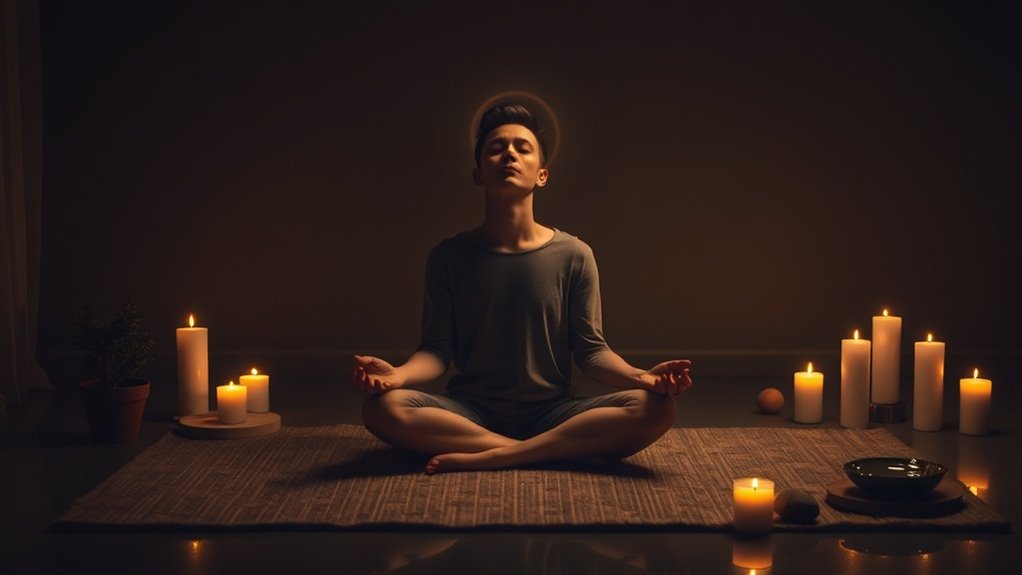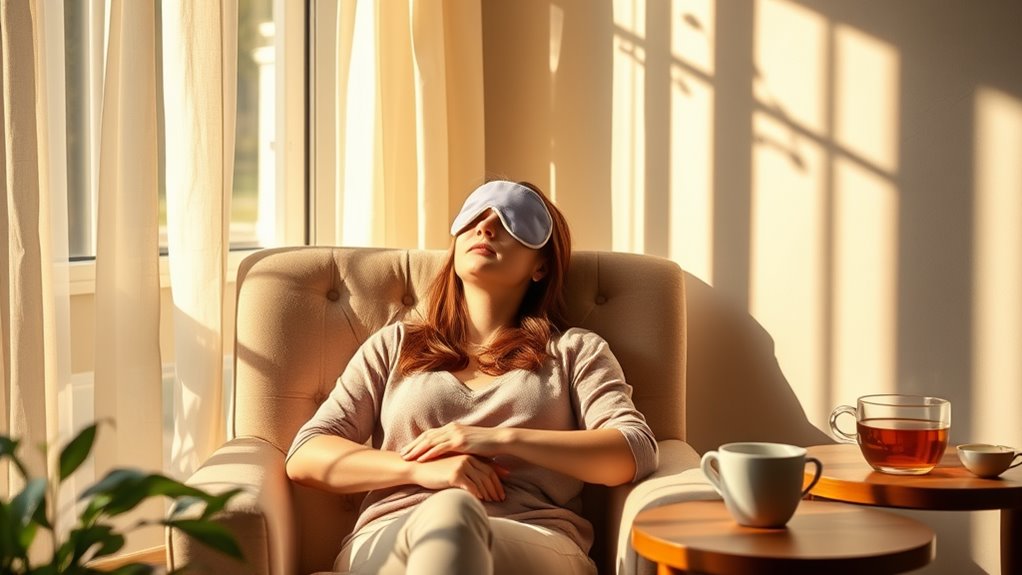I Cleared My Migraine Without Pills Using This Method
Understanding Migraines: The Triggers and Symptoms
Migraines can strike unexpectedly, making it crucial to understand their common triggers and symptoms.
Many people experience triggers like stress, certain foods, and hormonal changes. Symptoms may include severe headaches, nausea, and sensitivity to light or sound. Recognizing these factors can empower you to seek natural migraine relief by avoiding triggers and identifying effective coping strategies tailored to your experiences. Incorporating methods like pressure point therapy into your routine can further enhance your ability to manage migraines naturally.
Exploring Natural Remedies for Relief
When you want to relieve a migraine without reaching for medication, exploring natural remedies can be a game-changer.
Techniques like applying peppermint oil to your temples or using cold packs on your neck can significantly ease pain. Herbal supplements like magnesium and feverfew have shown promise in studies. Staying hydrated and adjusting your diet may also help prevent future attacks effectively. Additionally, practices such as deep breathing exercises might aid in reducing the intensity of migraine symptoms quickly.
Mindfulness and Relaxation Techniques
When you experience a migraine, practicing mindfulness and relaxation techniques can significantly ease your discomfort.
Techniques like deep breathing exercises, guided meditation, and progressive muscle relaxation help reduce stress and tension, often triggering migraine relief. Incorporating these methods into your routine can empower you to manage your migraines more effectively. Additionally, utilizing the 4-7-8 breathing technique can further enhance your relaxation and provide quick anxiety relief.
Deep Breathing Exercises
Many people find that deep breathing exercises can significantly alleviate migraine symptoms, promoting relaxation and reducing stress.
By focusing on slow, deep breaths, you increase oxygen flow and activate your body’s relaxation response. Techniques like diaphragmatic breathing help lower heart rate and decrease tension.
Practicing these exercises for just a few minutes daily can enhance overall well-being and potentially lessen the frequency of migraines.
Guided Meditation Practices
Building on the relaxation techniques like deep breathing, guided meditation practices can further enhance your ability to manage migraine symptoms.
These techniques promote mindfulness and deep relaxation, reducing stress that may trigger migraines.
- Focus on your breath and the present moment.
- Use visualization to create a calming mental space.
- Incorporate body scans to release tension in the body.
Explore these methods to find relief.
Progressive Muscle Relaxation
While you may be seeking immediate relief from a migraine, incorporating Progressive Muscle Relaxation (PMR) into your routine can provide significant benefits.
By systematically tensing and relaxing each muscle group, you release physical tension and promote mental calmness.
Studies show that PMR can effectively reduce stress and improve overall well-being, helping you manage migraine symptoms more effectively without relying solely on medication.
Dietary Changes That Help
Making thoughtful dietary changes can significantly alleviate migraine symptoms and even reduce their frequency.
Consider incorporating these strategies into your routine:
- Increase magnesium-rich foods like spinach and nuts.
- Stay hydrated by drinking sufficient water throughout the day.
- Limit processed foods and additives, which can trigger migraines.
Additionally, consuming fruits that are high in magnesium and antioxidants can provide quick relief from migraine symptoms.
Lifestyle Adjustments for Long-Term Wellness
Implementing lifestyle adjustments can complement the dietary changes you’ve made, creating a holistic approach to managing migraines.
Focus on regular sleep patterns, stress reduction techniques like mindfulness, and consistent hydration.
Incorporating physical activity such as yoga can also enhance your overall well-being. Additionally, maintaining a consistent sleep schedule can improve sleep quality, which is crucial for migraine management.
Each of these changes not only reduces the frequency of migraines but promotes long-term wellness, setting a positive foundation for your health.
My Personal Journey to Relief Without Pills
When I first decided to tackle my migraines without relying on medication, I knew I needed a strategic approach.
I began exploring natural methods that could provide relief. Here’s what I discovered:
-
Hydration: Staying well-hydrated helps reduce migraine frequency.
-
Stress Management: Techniques like meditation lowered my stress levels.
-
Dietary Changes: Keeping a food diary revealed triggers that exacerbated my migraines.





